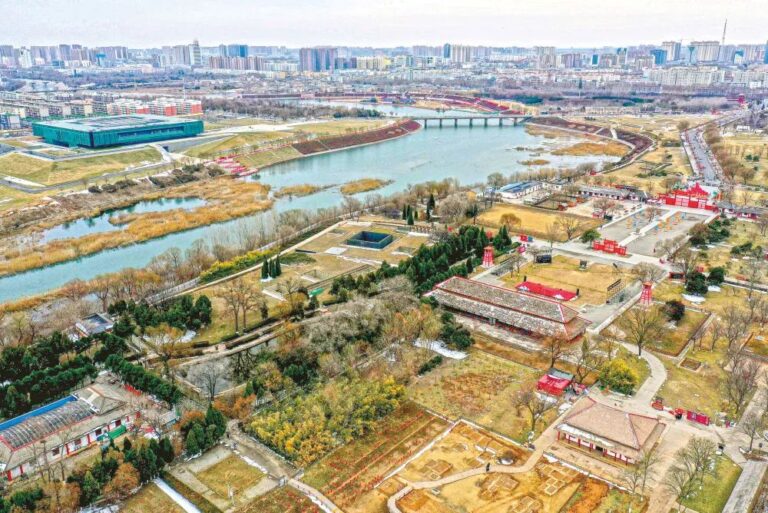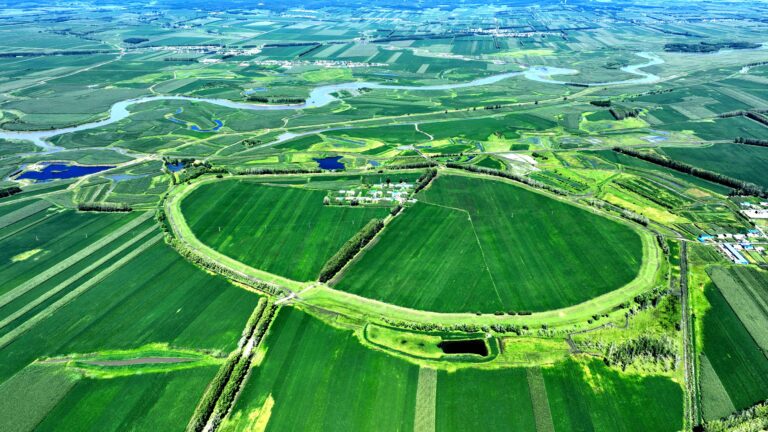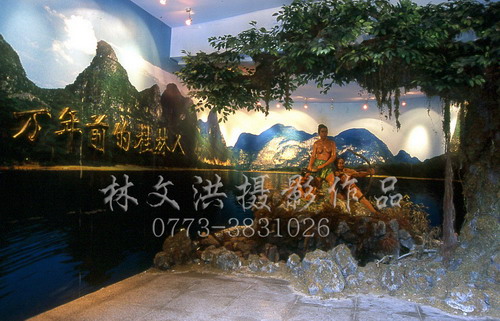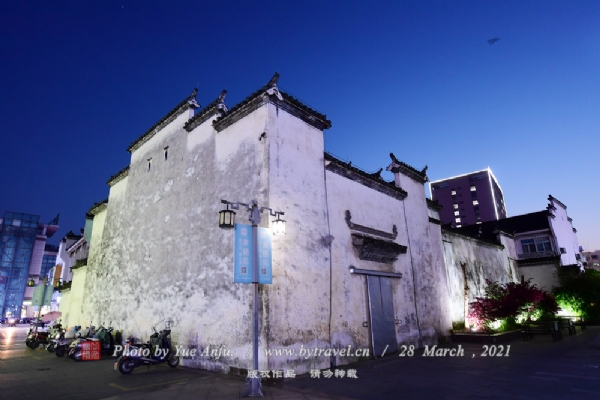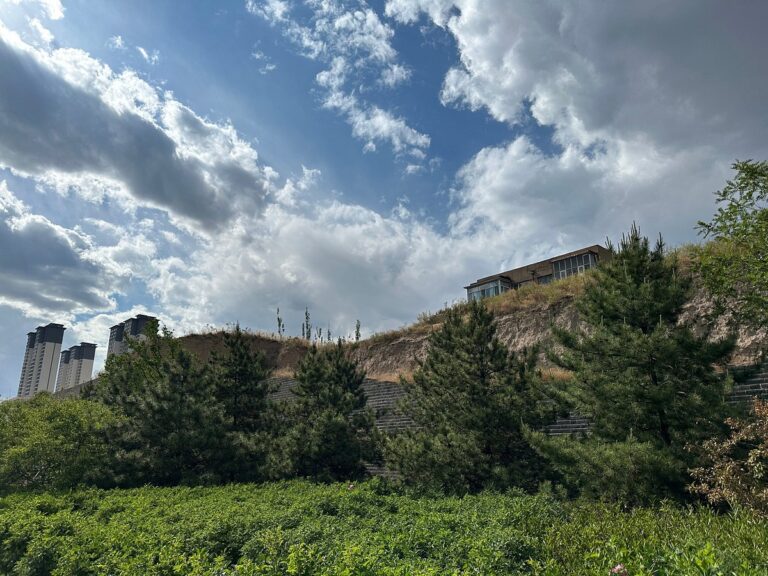Explore the Rich Heritage of Zhangjiakou Nihewan Site Group: A Must-Visit Destination for History Buffs
An Essential Guide to Visiting Zhangjiakou Nihewan Site Group
In This Guide
- An Essential Guide to Visiting Zhangjiakou Nihewan Site Group
- The Rich History of Zhangjiakou Nihewan Site Group
- Main Highlights: What to See at Zhangjiakou Nihewan Site Group
- Planning Your Visit: A Practical Guide
- Tickets, Hours, and Booking
- How to Get There
- Local Cuisine and Accommodation
- Frequently Asked Questions
- Final Thoughts on Your Trip
Nestled in the picturesque landscape of Hebei Province, the Zhangjiakou Nihewan Site Group stands as a remarkable testament to humanity’s ancient past. Often referred to as the “cradle of early human civilization,” this extraordinary archaeological site boasts a rich tapestry of history that dates back over two million years. The Nihewan basin, where the site is located, was once a thriving lake surrounded by lush forests, providing an ideal habitat for prehistoric life and early humans.
As visitors explore this fascinating area, they will discover numerous Paleolithic relics, including stone tools and abundant fossilized remains of ancient mammals. The site is renowned for its diverse collection of artifacts, making it one of the most significant archaeological locations in East Asia. Indeed, the Nihewan Site Group has challenged long-held beliefs about human origins, offering compelling evidence that pushes back the timeline of human activity in the region.
Today, the Nihewan Site Group is not only a critical research area but also a captivating destination for travelers and history enthusiasts. The site features a well-maintained archaeological park, where visitors can walk among the remnants of a bygone era, gaining insights into the lives of our distant ancestors. Whether you are a seasoned archaeologist or a curious traveler, a trip to this extraordinary site promises a unique glimpse into the dawn of human civilization, set against the stunning backdrop of Hebei’s natural beauty.
The Rich History of Zhangjiakou Nihewan Site Group
The Zhangjiakou Nihewan Site Group, located in Hebei province, is a treasure trove of prehistoric significance that offers profound insights into the origins of human civilization in East Asia. This archaeological site, nestled in the Nihewan Basin, is renowned for its extensive collection of Paleolithic artifacts and fossils, dating back as far as 2 million years.
Archaeological activities in this region began earnestly in the 20th century, with scientists from both China and abroad uncovering numerous shell and mammal fossils. The discoveries made here have established the Nihewan Site Group as a critical location for studying early human life and behavior. The site is particularly notable for its evidence of early human presence during various stages of the Paleolithic era, with 18 sites identified that are over one million years old, making it unparalleled globally.
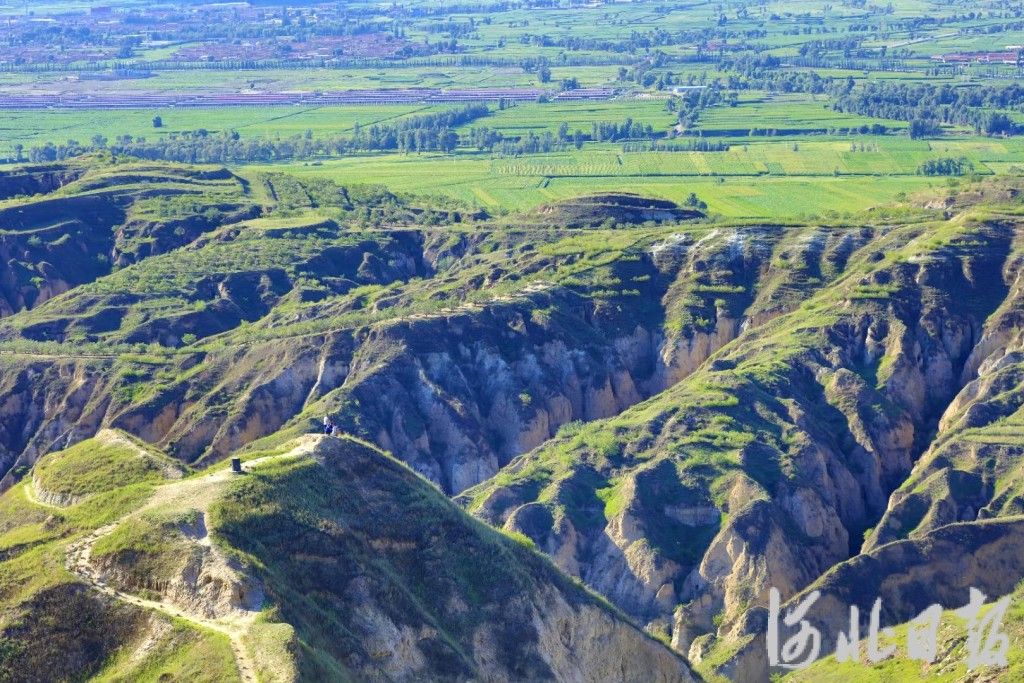
Zhangjiakou Nihewan Site Group.
One of the most significant breakthroughs came from the excavation at the Majuan River site, which pushed the timeline of human activity in the region back to approximately 2 million years ago. This finding directly challenges the long-held view that Africa was the sole cradle of human evolution, suggesting that East Asia may also have played a pivotal role in human development.
At the Nihewan Site Group, archaeologists have unearthed an impressive array of stone tools, animal bones, and other artifacts that illuminate the lifestyle and environment of early human inhabitants. The site not only reflects human adaptation to climatic changes and their interaction with the local fauna but also offers a glimpse into their social structures and survival strategies.
In recent years, the Nihewan Site Group has garnered international attention, particularly during high-profile events such as the 2022 Beijing Winter Olympics, where it was featured as a site of cultural heritage. This has helped to raise awareness about the site’s significance and the ongoing research efforts aimed at uncovering more about the lives of the “Nihewan people.”
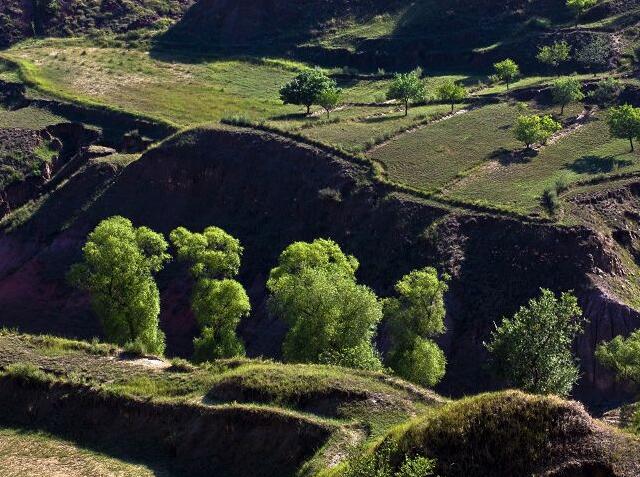
Zhangjiakou Nihewan Site Group.
The establishment of the Nihewan National Archaeological Park has further facilitated public access to this remarkable archaeological heritage. Visitors can explore the site, viewing the locations of significant excavations while learning about the rich tapestry of human history that unfolded here over millennia. As research continues, the Nihewan Site Group remains a crucial focal point for understanding the early chapters of human evolution and migration.
Main Highlights: What to See at Zhangjiakou Nihewan Site Group
The Zhangjiakou Nihewan Site Group is a remarkable archaeological treasure located in Hebei Province, China, specifically within the scenic Nihewan Basin. This area is celebrated for its rich paleontological history, showcasing remnants from the Paleolithic era that offer profound insights into early human life.
Key Highlights
-
Significance as an Archaeological Site: Often referred to as the “Holy Land of Paleolithic Archaeology,” the Nihewan Site Group is home to an extensive collection of Old Stone Age artifacts, including over 10,000 stone tools and an impressive array of mammal fossils. The site is believed to be one of the richest in East Asia, with evidence of human activity dating back approximately 1 million years.
-
Cultural and Historical Importance: This site challenges the traditional view of human origins centered solely in Africa, presenting compelling evidence that humans may have also evolved in East Asia. Studies conducted here have uncovered signs of early hominid habitation, making it a crucial point for understanding the migration and development of early humans.
-
Unique Geological Features: The Nihewan Basin itself was once a large lake, teeming with prehistoric wildlife. Over time, geological changes transformed this landscape into the present-day hills and plateaus. The area’s climate and rich biodiversity provided an ideal habitat for early human societies, which is evident from the numerous artifacts found.
-
Educational Opportunities: The Nihewan National Archaeological Park features a museum that offers visitors a chance to learn about the ancient human activities in the region. Exhibits include fossils, tools, and informative displays that highlight the significance of the findings and their contribution to our understanding of human evolution.
-
Natural Beauty and Scenic Views: The park is not only a hub for archaeology but also an area of stunning natural beauty. Visitors can enjoy leisurely walks along the riverbanks, taking in the picturesque landscapes that surround the basin, making it a perfect spot for both exploration and relaxation.
-
Accessibility and Visitor Information: Open year-round, the Nihewan Site Group welcomes visitors with accessible facilities. The park typically operates from 8:00 AM to 6:00 PM, providing ample time for exploration. An affordable entrance fee allows guests to immerse themselves in the rich history and beauty of this unique site.
Whether you’re an archaeology enthusiast, a history buff, or simply someone looking to connect with the natural world, the Zhangjiakou Nihewan Site Group offers an unforgettable journey into the distant past.
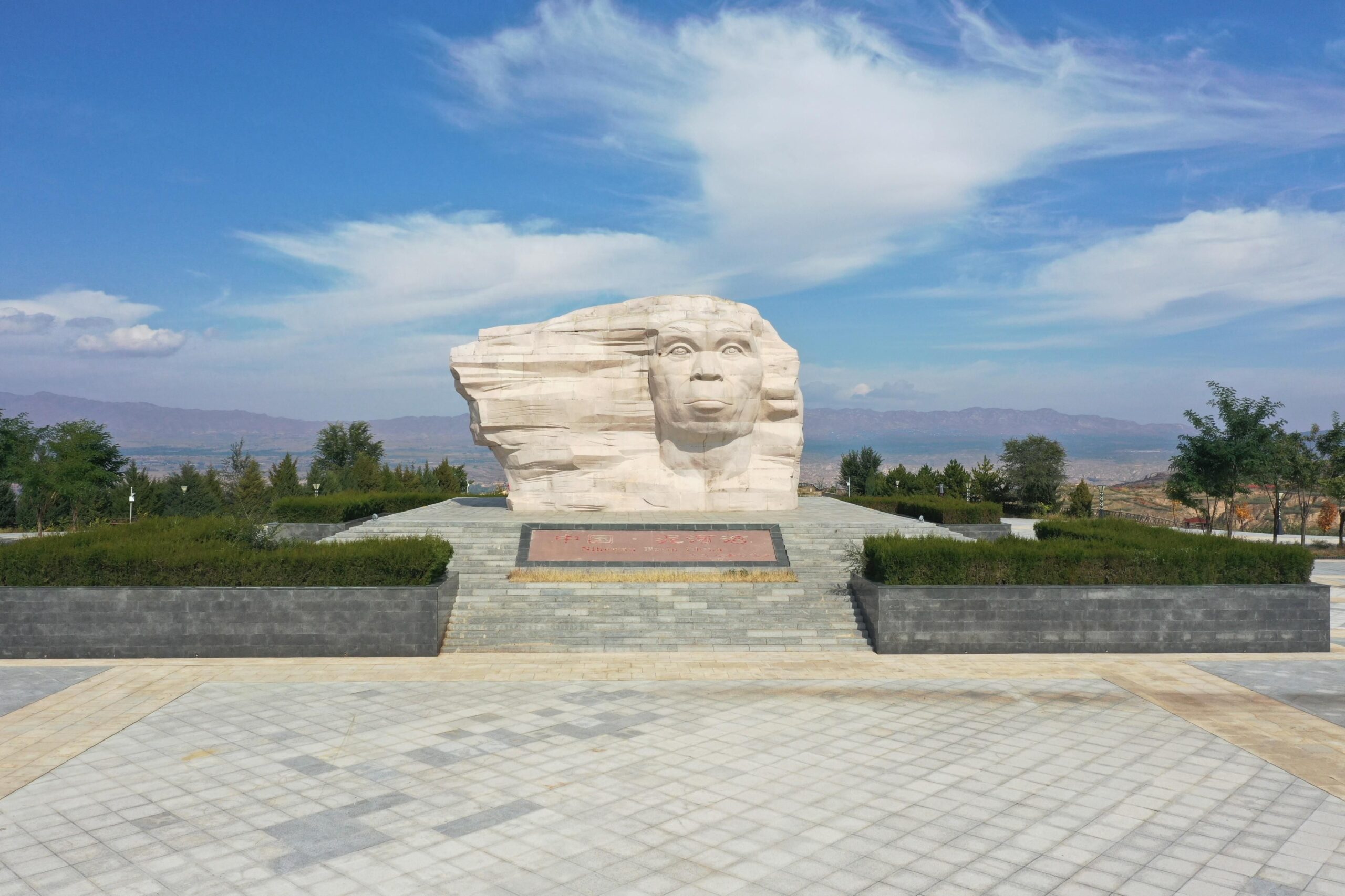
Zhangjiakou Nihewan Site Group.
Planning Your Visit: A Practical Guide
Practical Guide to Visiting the Zhangjiakou Nihewan Site Group
Visiting the Zhangjiakou Nihewan Site Group offers a unique opportunity to delve into the origins of humanity, explore ancient cultures, and witness one of the most significant archaeological sites in East Asia. To make the most of your experience, consider the following practical tips:
Getting There
The Nihewan Site Group is located in the Yangyuan County of Zhangjiakou City, Hebei Province. The nearest major city is Beijing, which is approximately 200 kilometers away. Here are some transportation options:
- By Train: High-speed trains run from Beijing to Zhangjiakou, taking around 1.5 to 2 hours. From Zhangjiakou Railway Station, you can take a local bus or taxi to Yangyuan County.
- By Bus: Long-distance buses from Beijing to Yangyuan also operate regularly. The journey takes about 3 to 4 hours.
- By Car: If you’re driving, take the G6 Beijing-Tibet Expressway, which provides a convenient route to the site.
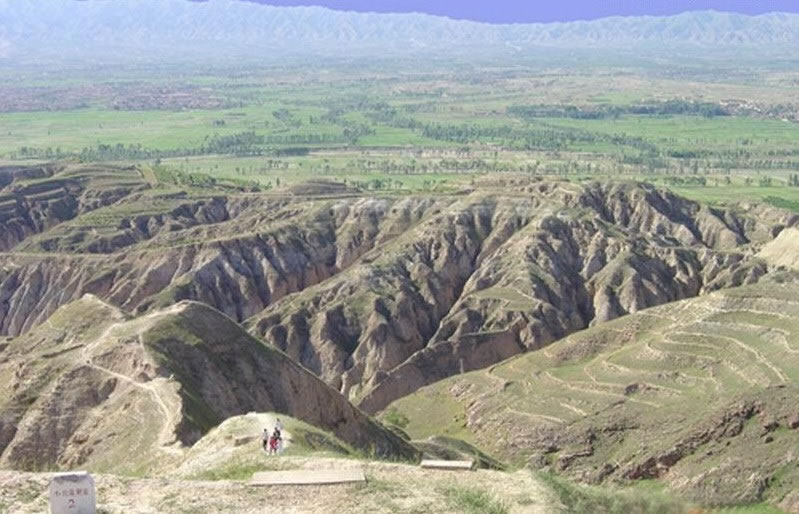
Zhangjiakou Nihewan Site Group.
Opening Hours and Admission
The Nihewan Site Group is open daily from 8:00 AM to 5:30 PM, with the last entry allowed at 5:00 PM. Admission fees are approximately 10 RMB (around $1.50). Note that prices may vary, so it’s advisable to check for updates before your visit.
What to Expect
The site is a treasure trove of archaeological finds, primarily from the Paleolithic era, with many artifacts dating back over a million years. You can explore various excavation sites and view numerous stone tools and fossils. Keep in mind that the site is primarily educational; hence, you might not see extensive physical structures, but the historical significance is profound.
Guided Tours
For a deeper understanding of the archaeological significance, consider joining a guided tour. Local guides are knowledgeable about the history and discoveries at Nihewan and can enhance your experience with insightful commentary.
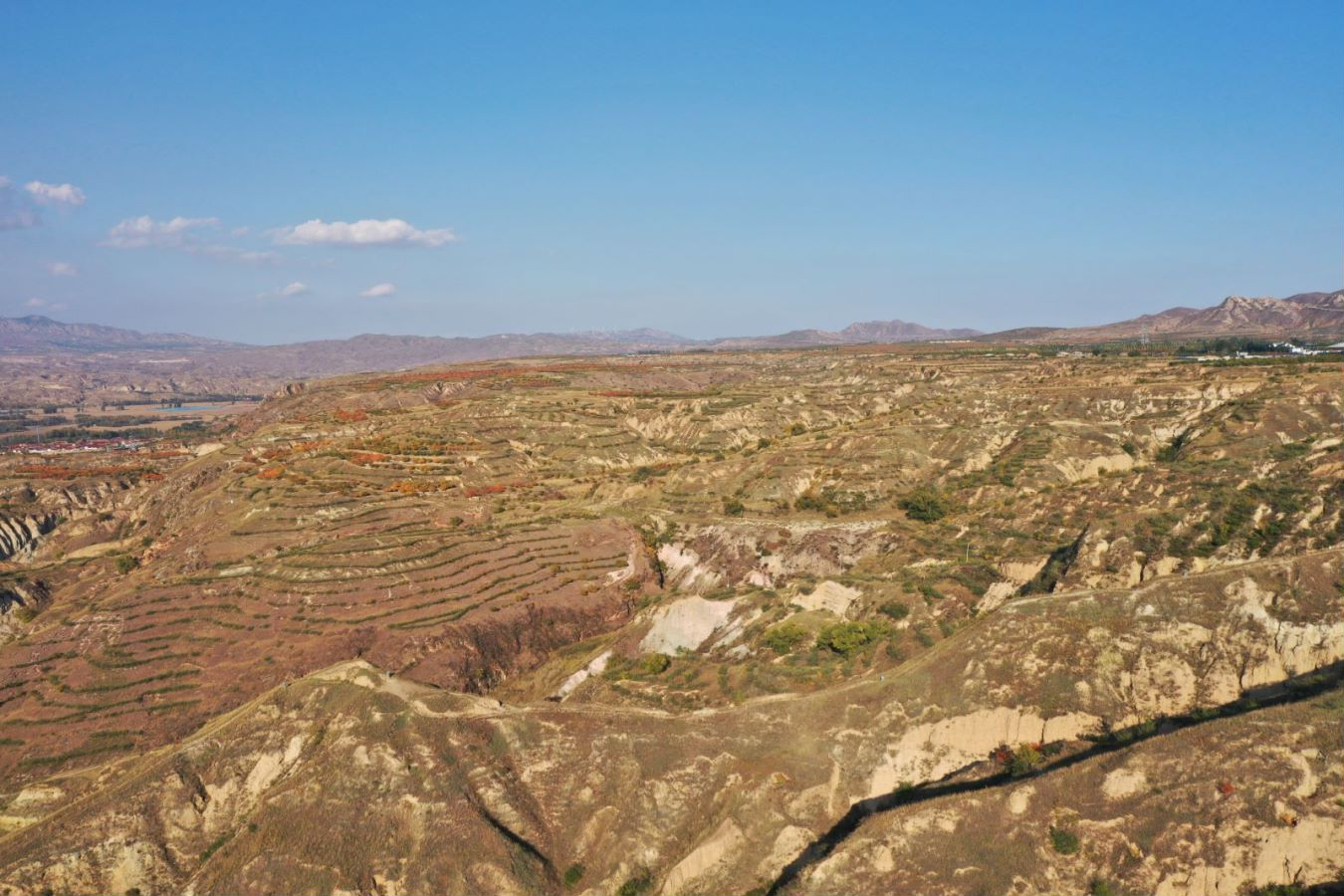
Zhangjiakou Nihewan Site Group.
Nearby Attractions
After exploring the Nihewan Site Group, consider visiting these nearby attractions:
- Nihewan Museum: Located close to the archaeological site, this museum showcases artifacts unearthed from the Nihewan region, providing context and depth to your visit.
- Sanggan River Canyon: A beautiful natural site for hiking and photography, offering stunning views and a chance to connect with the local environment.
Accessibility
The site is relatively accessible, but it’s wise to wear comfortable shoes as you might need to walk over uneven terrain. If you have mobility concerns, check in advance about available facilities and support.
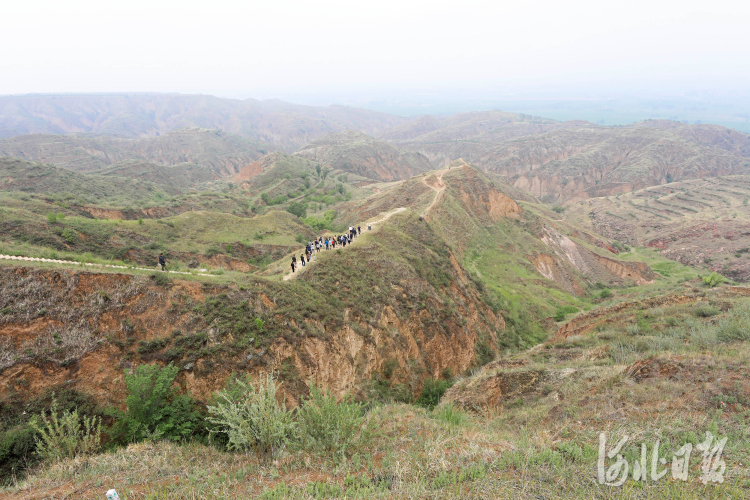
Zhangjiakou Nihewan Site Group.
Best Time to Visit
The ideal time to visit Nihewan is from April to October, when the weather is mild and conducive to outdoor exploration. Avoid visiting during winter months, as snow can make traveling difficult and some areas may be less accessible.
Tips for a Great Visit
- Bring Water and Snacks: While there are limited facilities nearby, bringing your own refreshments can enhance your comfort during your visit.
- Plan for Weather: Check the weather forecast ahead of your trip and dress in layers to accommodate temperature changes throughout the day.
- Respect the Site: As with any archaeological site, it’s important to follow posted guidelines to preserve the integrity of the location.
By following this guide, you can ensure a rewarding and enlightening experience at the Zhangjiakou Nihewan Site Group, a place where the ancient past continues to speak to us.
Tickets, Hours, and Booking
Visiting the Zhangjiakou Nihewan Site Group offers a fascinating journey into ancient history, and it’s important to be prepared with the right ticketing information to enhance your experience.
Ticket Prices and Accessibility
- General Admission: The entry fee to the Nihewan National Archaeological Park is approximately ¥10 (about $1.50 USD). This nominal fee grants you access to a site rich in Paleolithic history and archaeological significance.
- Discounts: Concessions may apply for students, seniors, and groups, so it’s advisable to inquire about available discounts upon arrival.
- Operating Hours: The park is open daily from 8:00 AM to 5:30 PM, with the last entry at 5:00 PM. This timeframe allows for ample exploration of the site, typically recommended for around 2 hours.
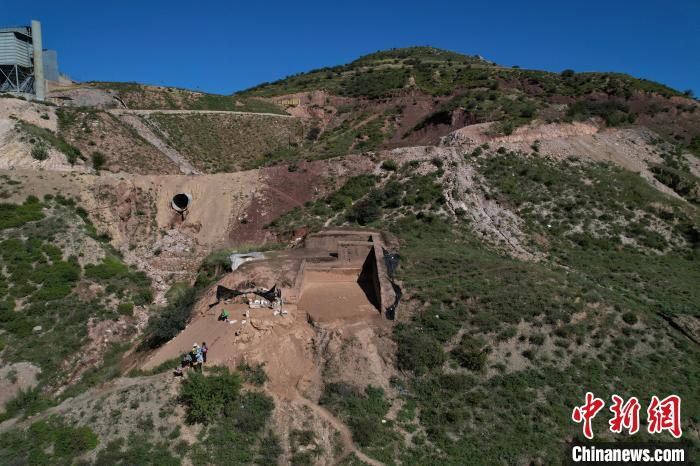
Zhangjiakou Nihewan Site Group.
Purchasing Tickets
Tickets can be conveniently purchased at the entrance of the park. However, for a hassle-free experience, consider pre-booking through various online platforms like Ctrip or Meituan, which may offer promotional deals or group rates.
Additional Tips
- Best Time to Visit: The ideal months for visiting are between April and October, when the weather is most favorable for outdoor exploration.
- Accessibility: The site is designed to be accessible for visitors of all ages, including those with mobility challenges.
- Visitor Guidelines: Ensure to check for any alerts regarding closures due to severe weather or special events that might affect your visit.
By planning ahead and securing your tickets, you can fully immerse yourself in the wonders of the Nihewan Site Group, discovering the profound impacts of ancient human activity in East Asia.
How to Get There
Reaching the Zhangjiakou Nihewan Site Group, a treasure trove of prehistoric archaeology, requires a bit of planning, but the journey is well worth the effort. This remarkable site, located in the Yangyuan County of Zhangjiakou, Hebei Province, can be accessed through various modes of transportation, making it accessible for both domestic and international visitors.
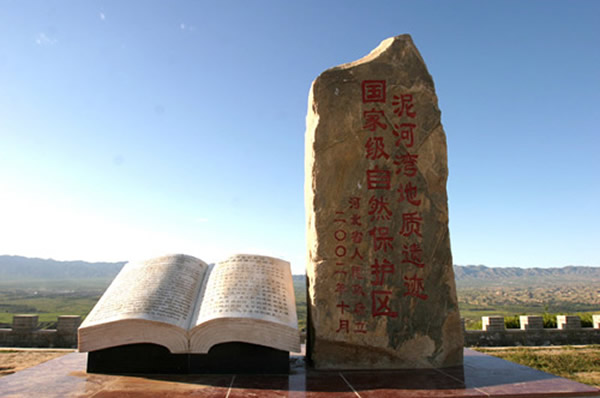
Zhangjiakou Nihewan Site Group.
Getting There by Air
The nearest major airport is Zhangjiakou Ningyuan Airport, which hosts flights primarily from Beijing. Once you arrive at the airport, you can hire a taxi or arrange for a shuttle service to take you to the site, which is about 60 kilometers away. Depending on traffic, this journey can take approximately one hour.
By Train
For those traveling from Beijing or other major cities, taking a train to Zhangjiakou is a convenient option. High-speed trains frequently depart from Beijing West Railway Station, with the journey taking around 1.5 to 2 hours. Once you arrive at Zhangjiakou Railway Station, you can take a local bus or taxi to the Nihewan Site Group. The distance from the train station to the site is roughly 40 kilometers, and taxis are readily available outside the station.
By Bus
Long-distance buses are another viable option, with services running from various cities including Beijing and Tianjin directly to Yangyuan County. The bus ride typically takes around 3 to 4 hours, depending on your departure point. Once in Yangyuan, you can take a local taxi or an arranged shuttle to the site, which is about 15 kilometers away.
Local Transport
Once you arrive in Yangyuan County, local transport options include taxis and ride-hailing services, which are affordable and widely used. For a more scenic route, consider renting a bicycle or even exploring the area on foot, especially if you have a keen interest in the local landscape and wildlife.
Accessibility
The site is designed to be accessible for all visitors, including those with mobility challenges. Pathways and facilities have been improved to ensure a comfortable experience for everyone.
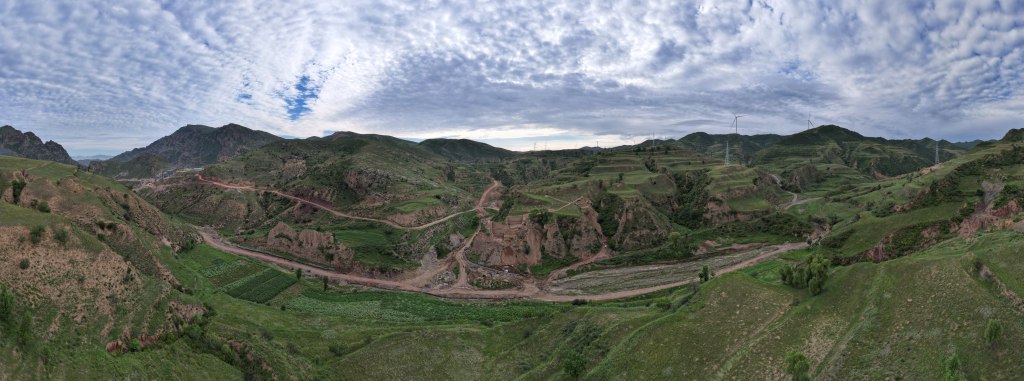
Zhangjiakou Nihewan Site Group.
Best Time to Visit
The optimal time to visit the Nihewan Site Group is from April to October when the weather is pleasant, and the site’s natural beauty is at its peak. Ensure to check local weather conditions beforehand and plan your travel routes accordingly.
Conclusion
With various transportation options available, planning your visit to the Zhangjiakou Nihewan Site Group is straightforward. Whether you choose to fly, take a train, or travel by bus, the journey will lead you to an essential piece of our shared human history, nestled in the picturesque landscapes of Hebei Province.
Local Cuisine and Accommodation
When visiting the Zhangjiakou Nihewan Site Group, you’ll find a mix of local culinary delights and comfortable accommodation options that enhance your experience of this historical gem.
Dining Recommendations
-
Hehe Lou (禾河楼)
Located about 48 km from the Nihewan site, Hehe Lou offers a selection of traditional Chinese dishes. Known for its warm atmosphere and attentive service, it’s an excellent spot for those looking to enjoy authentic local flavors. Expect to pay around ¥76 per person. -
Sanhe Tai Restaurant (三合泰饭庄)
This eatery, approximately 41 km from the site, specializes in farm-to-table meals, featuring fresh ingredients sourced from local farms. The menu includes hearty, rustic dishes that reflect the culinary heritage of the Hebei province, with prices averaging ¥54. -
Yuanji Chuan Chuan Xiang (袁记串串香)
For a more casual dining experience, head to Yuanji Chuan Chuan Xiang, known for its delicious hot pot options. Located about 42 km away, it offers a vibrant atmosphere and a variety of skewered meats and vegetables, all for around ¥44 per person.
Accommodation Options
-
Yangyuan Hot Spring Hotel (阳原温泉宾馆)
This hotel combines comfort with relaxation, featuring hot spring facilities that are perfect for unwinding after a day of exploration. The hotel is well-rated for its amenities and service, making it a great choice for travelers seeking a serene retreat. -
Yangyuan Binhaiyuan Hotel (阳原宾海苑宾馆)
Offering modern conveniences and spacious rooms, this hotel is located conveniently close to the Nihewan site. With competitive pricing and a friendly staff, it’s an ideal option for families or groups looking for a comfortable stay. -
Kanglu Hot Spring Resort (康路温泉度假村)
Situated near the scenic areas, this resort features a range of recreational facilities, including hot springs and wellness services. It’s perfect for those who wish to combine leisure with their cultural exploration, providing a unique blend of relaxation and adventure.
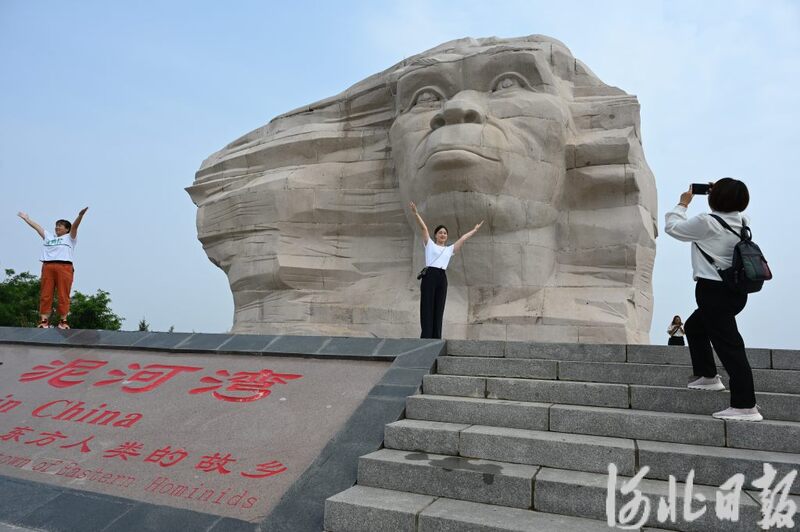
Zhangjiakou Nihewan Site Group.
Tips for Your Visit
- Timing: The best time to visit Nihewan is from April to October when the weather is mild, allowing for comfortable exploration of the archaeological park and surrounding areas.
- Reservations: It’s advisable to book accommodations in advance, especially during peak tourist seasons, to ensure availability.
Indulging in local cuisine and staying at a cozy accommodation will enrich your journey to the Zhangjiakou Nihewan Site Group, making your trip both enjoyable and memorable.
Frequently Asked Questions
-
What is the Zhangjiakou Nihewan Site Group?
The Zhangjiakou Nihewan Site Group is a significant archaeological site located in the Nihewan Basin of Hebei Province, China. It features numerous Paleolithic-era sites that provide insights into early human activity and culture, with findings dating back approximately two million years. -
How can I get to the Nihewan Site Group?
The site is accessible via public transportation or private car. It is located in Yangyuan County, Zhangjiakou City, and is well connected to major cities in the Hebei region. Local buses and taxis can help visitors reach the park from nearby towns. -
What are the opening hours?
The Nihewan National Archaeological Site Park is open daily from 8:00 AM to 5:30 PM. Visitors are advised to arrive early to fully explore the site and its exhibits. -
Is there an entrance fee?
Yes, the entrance fee for the Nihewan Site Group is approximately 10 CNY (about $1.50 USD). However, prices may vary, so it is advisable to check for any updates before your visit. -
Are there guided tours available?
Yes, guided tours are available and highly recommended for a deeper understanding of the site’s historical significance and archaeological discoveries. These tours can often be booked in advance through local travel agencies or at the park entrance. -
What can I see at the Nihewan Site Group?
Visitors can explore numerous excavated sites showcasing ancient stone tools, fossil remains, and artifacts that reflect the lifestyle of early humans. The park also features educational displays and exhibitions about prehistoric life. -
Is the site accessible for individuals with disabilities?
The park has made efforts to accommodate visitors with disabilities. However, it is advisable to check in advance regarding specific accessibility features and paths to ensure a comfortable visit. -
What is the best time to visit the Nihewan Site Group?
The ideal time to visit is between April and October, when the weather is pleasant for outdoor exploration. Spring and autumn offer particularly beautiful scenery and comfortable temperatures for walking around the site.
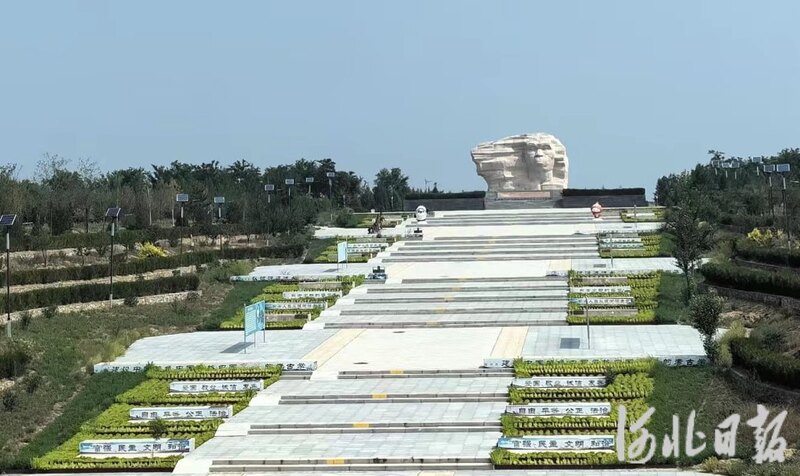
Zhangjiakou Nihewan Site Group.
Final Thoughts on Your Trip
Visiting the Zhangjiakou Nihewan Site Group offers a unique journey into the depths of human history, revealing a narrative that extends back over two million years. As the cradle of early human civilization in East Asia, this remarkable archaeological site provides an invaluable glimpse into our ancestors’ lives, their environments, and their evolution.
Exploring the diverse relics, from stone artifacts to fossilized remains, sparks a profound appreciation for the resilience and ingenuity of early humans. The Nihewan Site not only challenges previous notions of human origins but also invites visitors to reflect on the shared heritage of humanity.
Whether you’re a history enthusiast, a curious traveler, or simply someone seeking inspiration from the past, Zhangjiakou Nihewan is more than just a destination—it’s a testament to our shared journey through time. Embrace the opportunity to walk in the footsteps of our ancestors and connect with the threads of history that bind us all.
